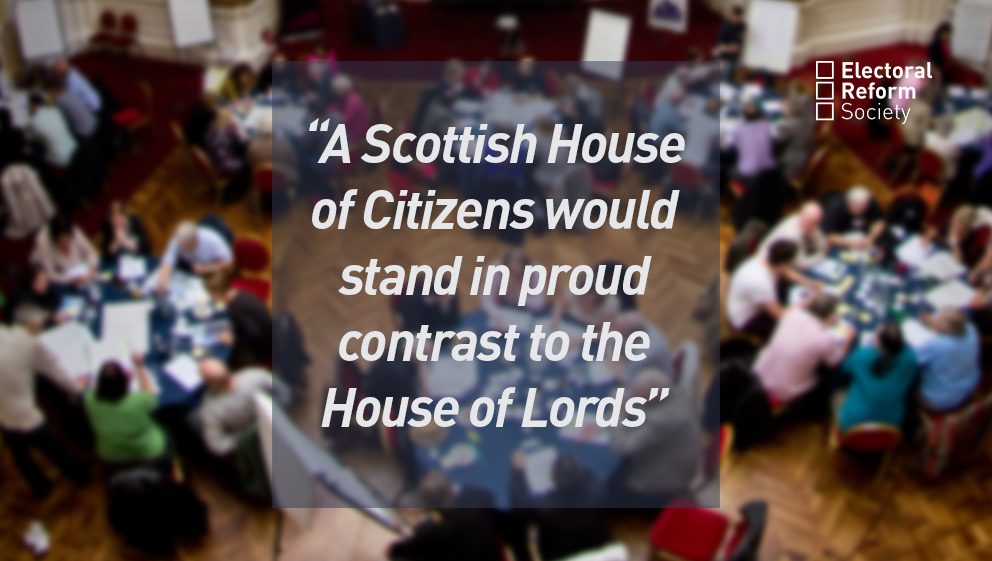Around 2,000 Scots have now signed ERS Scotland’s petition calling for a revising chamber made up of ordinary citizens, following the overwhelming success of the Citizens’ Assembly of Scotland, where a randomly-selected group of citizens came together to make recommendations about major issues facing the country.
In contrast, politicians would be unable to cherry-pick members of a House of Citizens, which would be randomly-selected to reflect Scotland’s population.
The Citizens’ Assembly of Scotland overwhelmingly backed a new House of Citizens for Holyrood, which would scrutinise legislation. The calls for a ‘Parliament of the people’ are backed by the Sortition Foundation.
We’re calling for the new Scottish government to push ahead with the popular plans. Polling by YouGov revealed that support for the House of Citizens proposal among Scots outnumbers opposition by around 3 to 1, with 45% backing the plans, to just 14% opposed – support spread across all major parties – including an overall majority of Labour and SNP supporters.
Another poll revealed that support for institutionalising Citizen’s Assemblies is higher in Scotland than the rest of GB, with a majority of Scots supporting establishing Citizens’ Assemblies to inform the decisions of local councils and even replacing the House of Lords with a rotating Citizens’ Assembly.
The latest Lords revelations show there’s no longer even an attempt to sugar-coat the House of Lords. It is beyond indefensible, with donors bagging seats for life to vote on our laws. Scotland can and must stand in contrast to this, with a second chamber for the people. For centuries, the Lords has been a tool for gifting loyalists and donors, with ermine robes and a major sway over decision-making in this country. It is a hotbed of institutionalised corruption.
In Scotland, the recent Citizens’ Assembly was unequivocal in its calls for greater citizen involvement in decision-making, rather than big party donors. A House of Citizens could be an absolute game-changer, giving our laws even more legitimacy and turbo-charging political engagement. It would send a momentous message to Westminster, that Scotland was leading the way in democracy.
As Will Stringer from the Sortition Foundation said today: “For too long we’ve sat back and had to watch the cronyism of the House of Lords undermine our democracy, and centre the lives of the wealthiest in the UK. In Scotland we can do democracy differently, by hardwiring ordinary Scottish people into decision making in a House of Citizens’ Report on how a House of Citizens would work.”
Read the Sortition Foundation’s recent report on how a House of Citizens might work.
Sing the petition for a Scottish House of Citizens


